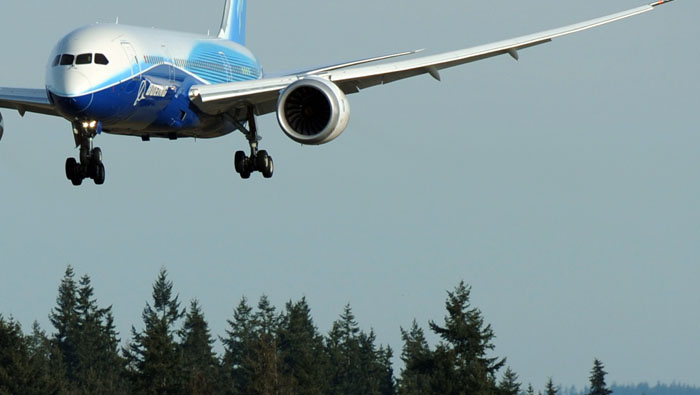
Muscat: Middle East airlines passenger demand increased 11.3 per cent in February compared to the same period a year ago, according to International Air Transport Association (IATA). This was exceeded, however, by a 16.9 per cent rise in capacity that caused load factor to drop 3.7 percentage points to 73 per cent. Traffic growth has now lagged capacity growth for six consecutive months.
International passenger demand in February rose 9.1 per cent compared to February 2015, which was an increase over the 7.3 per cent yearly increase recorded in January. Airlines in all regions recorded growth. Total capacity climbed 9.9 per cent, causing load factor to slip 0.6 per cent percentage points to 76.6 per cent, said the IATA global passenger traffic results.
“In the first two months of 2016, demand for passenger connectivity is off to its strongest start in eight years. However, February was the first month since the middle of 2015 in which capacity growth exceeded demand, which caused the global load factor to decline. It is unclear whether this signals the start of a generalised downward trend in load factor, but it bears watching,” said Tony Tyler, IATA director general and chief executive officer.
European carriers saw February demand increase by 7.7 per cent compared to a year ago. Traffic has recovered following disruptions in the 2015 fourth quarter related to airline strikes and the shutdown of Transaero in Russia.
Asia-Pacific airlines’ February traffic rose 11.2 per cent compared to the year-ago period. Comparisons with 2015 are distorted by the timing of the Lunar New Year celebrations, which took place in February this year. Slower economic growth in many of the region’s economies has been at least partly offset by the 7.3 per cent increase in the number of direct airport connections within the region, which has helped to stimulate passenger demand.
North American airlines’ traffic climbed 3.6 per cent, which was the slowest among the regions and was exceeded by a capacity expansion of 4.8 per cent. In turn, this caused load factor to fall 0.9 percentage points to 75.9 per cent. United States airlines have been focusing on the larger and more robust domestic market, although that market is showing signs of slowing in recent months.
Latin American airlines saw February traffic jump 10.4 per cent compared to February 2015. Domestic passenger demand remains under pressure from economic difficulties in the region’s biggest economies, but this seems not to be affecting business-related international travel.
African airlines posted the strongest demand growth among the regions with February traffic up 12.7 per cent compared to a year ago. The pick-up indicates that carriers here are regaining market share through efforts to rationalise networks and enhance revenue management systems, after several difficult years. It also aligns with a jump in exports from Africa.
In the domestic sector, travel demand rose 7.9 per cent in February compared to February 2015, which was an increase over growth of 6.9 per cent in January. All markets except Brazil showed growth, with the strongest increases occurring in India, the US and China. Domestic capacity climbed 9.0%, and load factor fell back.0.8 percentage points to 79.7 per cent.
India led all domestic markets again with a 24.6 per cent year-on-year growth, supported by the strong economic backdrop, as well as notable increases in services. This trend is expected to continue with flight frequencies in 2016 scheduled to increase by 11.5 per cent year-on-year.
“On March 22, we had a grim reminder that transportation— including aviation — remains a target for terrorism. The attacks in Brussels were an attack on humanity — a terrible tragedy — that was met with resilience. The subway is back in operation. And the airport is working hard to return to normal operations that will reconnect Europe’s capital with the world. Aviation is a force for good. And we are once again proving that terrorists will never succeed in destroying the fundamental urge of people to travel, explore and learn about the world,” said Tyler.